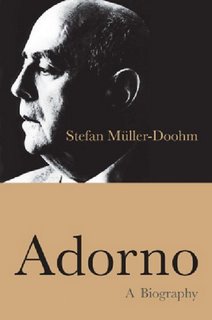 Down the street from Ear-X-tacy, one of the best guitar shops I've been in in recent years. They have my holy grail: an original Gibson ES-295, circa 1955 – like the one Scotty Moore played. No price tag – does that mean if I need to ask I can't afford it?, I query the counterman. "Naw. Price tag jes' fell off. I'll look it up... right, $7500." For some reason, I don't whip out the credit card, but give the guitar one long look before retreating out the door.
Down the street from Ear-X-tacy, one of the best guitar shops I've been in in recent years. They have my holy grail: an original Gibson ES-295, circa 1955 – like the one Scotty Moore played. No price tag – does that mean if I need to ask I can't afford it?, I query the counterman. "Naw. Price tag jes' fell off. I'll look it up... right, $7500." For some reason, I don't whip out the credit card, but give the guitar one long look before retreating out the door.I had planned to fly into Louisville on Thursday, but ended up spending half the day in the West Palm Beach airport waiting to find out how badly my flight was delayed. (I ended up rebooking for Friday morning.) Ever anxious to improve the time, however, I read Christopher Middleton's Of the Mortal Fire: Poems 1999-2002 (Sheep Meadow, 2003), in the process reminding myself just how amazing a poet Middleton is: a truly stunning density of thought and sound, even in a collection he describes as "only afterthoughts" ("odds & sods," Pete Townshend would say). From "The Curlew":
Well, he has done rinsing the sky
Clear of ghosts now.
And the true, still it fools
All the hectic sectarians.
Only the hermits hear
But obey the cry's lash. Heavily
Clouded vistas they spread into
Seldom welcome
Such questioners, each in his arms
Or hers, as they patrol
Targeted streets, cradling
An old cave, snatched up
At the last possible moment,
A crystal hollowness torn
From its crag, now distant, each
Coolly questioning equipoise.
 I mean to write some of my impressions of the conference itself – that seems to be a growing genre, conference-blogging (for a shockingly complete take on my own paper, see this post by Joshua Stuart). But I was conscious above all else of a certain "hole" in the proceedings. I've been going to L'ville for over a decade, always with pleasure and edification, always enjoying the company of other poets and scholars. But one motivation I've always had for going there was to jump in my rental, drive over to Lexington, and spend a few hours in front of the fire in Guy Davenport's sitting-room, surrounded by thousands of books, drawings, & paintings, listening to Guy ramble through his encyclopedic knowledge of pretty much every aspect of human culture that one might want to know something about. And now Guy's gone. Louisville is a fine and good thing, and I'm sure I'll be coming back – but the trip will never be the same.
I mean to write some of my impressions of the conference itself – that seems to be a growing genre, conference-blogging (for a shockingly complete take on my own paper, see this post by Joshua Stuart). But I was conscious above all else of a certain "hole" in the proceedings. I've been going to L'ville for over a decade, always with pleasure and edification, always enjoying the company of other poets and scholars. But one motivation I've always had for going there was to jump in my rental, drive over to Lexington, and spend a few hours in front of the fire in Guy Davenport's sitting-room, surrounded by thousands of books, drawings, & paintings, listening to Guy ramble through his encyclopedic knowledge of pretty much every aspect of human culture that one might want to know something about. And now Guy's gone. Louisville is a fine and good thing, and I'm sure I'll be coming back – but the trip will never be the same.
